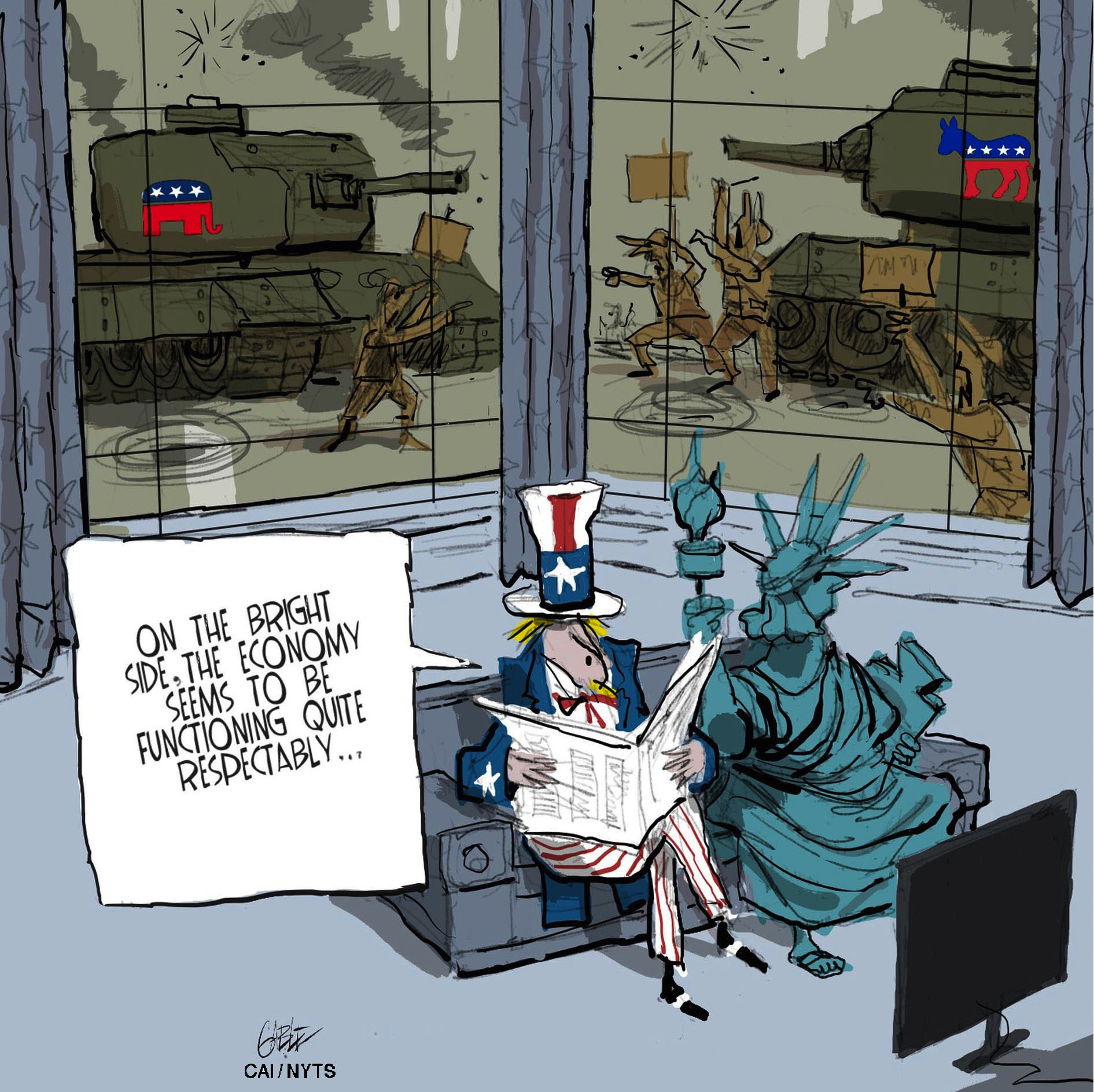For Europeans, the inconclusive results of the U.S. midterm election, with Democrats capturing the House and Republicans expanding their majority in the Senate, drive home an uncomfortable truth: President Donald Trump and Trumpism aren't going anywhere. That outcome has lasting implications in Europe and beyond.
A common theme of European — and official Russian — analyses of the results is that no one can really claim victory and the U.S. remains a divided country with a loose-cannon president. "America is split in two, and Trump and his policy haven't wavered," said Francois Bayrou, a French politician and former Cabinet official. "This makes it a very important challenge for Europe."
Unable to push a legislative agenda at home for the next two years because of a hostile House, Trump will pay more attention to foreign policy, where the president has greater power to act alone, as Riccardo Barlaam speculated in the Italian business daily Il Sole 24 Ore. The prospect of two more years of extraterritorial sanctions, tariff threats, demands for higher military spending, insistence that Europeans should buy U.S. hydrocarbons, slights to countries and cities as immigrant-infested hellholes and the rest of Trump's repertoire isn't as worrying as the clear possibility that he could win a second term in 2020. The midterms provide the first unassailable reason for non-Americans to take this prospect seriously.



















With your current subscription plan you can comment on stories. However, before writing your first comment, please create a display name in the Profile section of your subscriber account page.